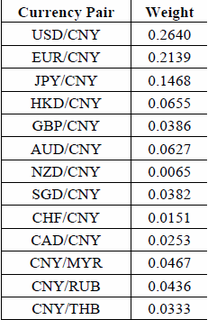A US trader has become the first to be found guilty of "spoofing" some of the world's largest commodity futures markets in a landmark criminal case for authorities attempting to clamp down on deceptive trading driven by computers.
A jury in Chicago on Tuesday found Michael Coscia, 53, guilty on 12 counts, including intending to defraud other traders by flooding gold, corn, soyabeans, foreign exchange and crude oil futures markets with small orders with the intent of cancelling them.
The criminal case was a test of authorities' attempts to stamp out computer-driven misleading trading on the some of the world's most active markets.
Spoofing is rapidly placing orders with the intent to cancel them before they trade in order to trick other investors by creating the illusion of demand. While long prohibited by authorities and exchanges, it was explicitly banned under the US Dodd-Frank financial reforms of 2010.
The tactic has risen to prominence in futures markets with the emergence of electronic trading that has taken the place of face-to-face trading.
Coscia faces a maximum sentence of 25 years and a $25,000 fine on each of the six counts of commodities fraud and 10 years and a $1m fine on each of the six counts of spoofing. Judge Harry Leinenweber set sentencing for March next year.
"We're disappointed by the verdict," said Mr Coscia's lawyer Steven Peikin of Sullivan and Cromwell. "We believe this case presents many novel and complex issues, and Mr Coscia intends to pursue all of his legal options."
The jury deliberated for about one hour before reaching a verdict after a seven-day trial.
Federal prosecutors alleged Mr Coscia made $1.4m in three months of 2011 at Panther Energy Trading with an algorithm custom designed to spoof designed to "bait and switch" investors.
Prosecutors alleged that on occasion, Mr Coscia's Panther Trading was the largest participant in the market in spite of only having seven traders.
Mr Coscia's attorneys argued the law under which he was charged was hopelessly vague.
Trace Schmeltz, a partner with Barnes and Thornburg and a securities and commodities legal expert who was not involved in the trial, said the case had provided clarity around what constitutes as spoofing.
"We have learned what is considered legitimate price discovery in terms of the size of the trades and how quickly they are being pulled. And if you have an algorithm designed to cancel itself if any part of the trade is touched, it is deemed to be spoofing," he said.
"If you were a trader in high-frequency trading and had an algorithm that automatically pulls trades, this [verdict] would be of serious concern to you."
Officials at CME and Intercontinental Exchange's London futures market discovered unusual trading by Mr Coscia's Panther Energy Trading in 2011 after receiving complaints from traders.
Employees from CME and ICE, as well as rival high-frequency traders at Citadel and GSA Capital, were on the government's witness list in the trial.
The verdict came at the start of the FIA Expo, a big annual trade show for the futures industry taking place in Chicago. Among the companies showcased at the show's "innovators pavilion" were some that use software to detect fraud.
The guilty verdict is expected to be closely scrutinised by lawyers for Navinder Singh Sarao, the London-based trader who is fighting extradition to the US after becoming the second person to be criminally charged with spoofing futures markets.
Mr Coscia's criminal case was notable, lawyers have said, because he was charged by prosecutors after already agreeing to settle civil charges of spoofing markets in 2013. The gravity of the prison sentence he could face over spoofing may give other traders pause before they settle with civil authorities, lawyers have observed.
Zachary T. Fardon, US attorney for the northern district of Illinois, said after the verdict that federal criminal prosecutions were an important tool in protecting fairness and integrity in the markets for legitimate traders and investors.
"The jury's verdict exemplifies the reason we created the Securities and Commodities Fraud Section in Chicago, which will continue to criminally prosecute these types of violations," he said in a statement.
http://www.cnbc.com/2015/11/04/us-trader-found-guilty-in-landmark-spoofing-case.html

